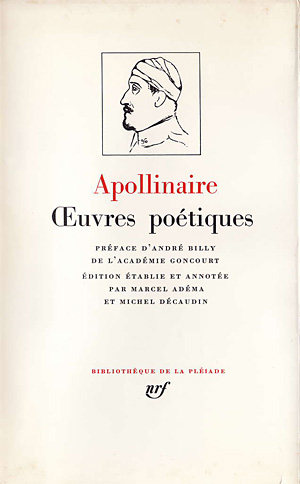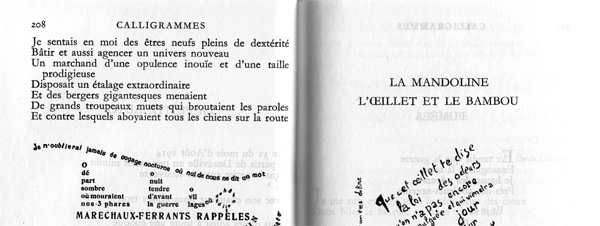
Yesterday’s mail brought the beautiful little book whose cover you see, with its sketch by P. Picasso of the wounded author–1,266 pages of Guillaume Apollinaire’s complete poems. The edition in question of this under-appreciated poet comes from Bibliothèque de la Pléiade, the in-every-sense-top-shelf volumes of canonical writings published by Gallimard. They’re bafflingly expensive, but occasionally one can find them for more reasonable rates online.
The pleasure of these editions is in their completeness, their portability, and their readability. They’re printed on onionskin and sewn in signatures. They don’t fall apart. None of that would matter, of course, if the pages themselves weren’t readable, but the pages are highly readable:

That lucidity of page is of particular benefit when reading Apollinaire, a poet greatly concerned with the interrelation between the substance of a poem and its appearance.

His life, brief and eventful and tragic, should have lured a filmmaker by now, but strangely has not. That’s luck–for the poems themselves are as rich a trove of twentieth-century treasures as you’re likely to find, delicate things in tremendous abundance and variety that no biopic could do anything but maul. More than a great many modern poets, Apollinaire was alive to the musical charge of line, as his own distant voice, reading his great sad lively lyric, “Le Pont Mirabeau,” suggests, in an MP3 here.
(One might also read the poem translated by Richard Wilbur, or see how it was interpreted by the Pogues.)





